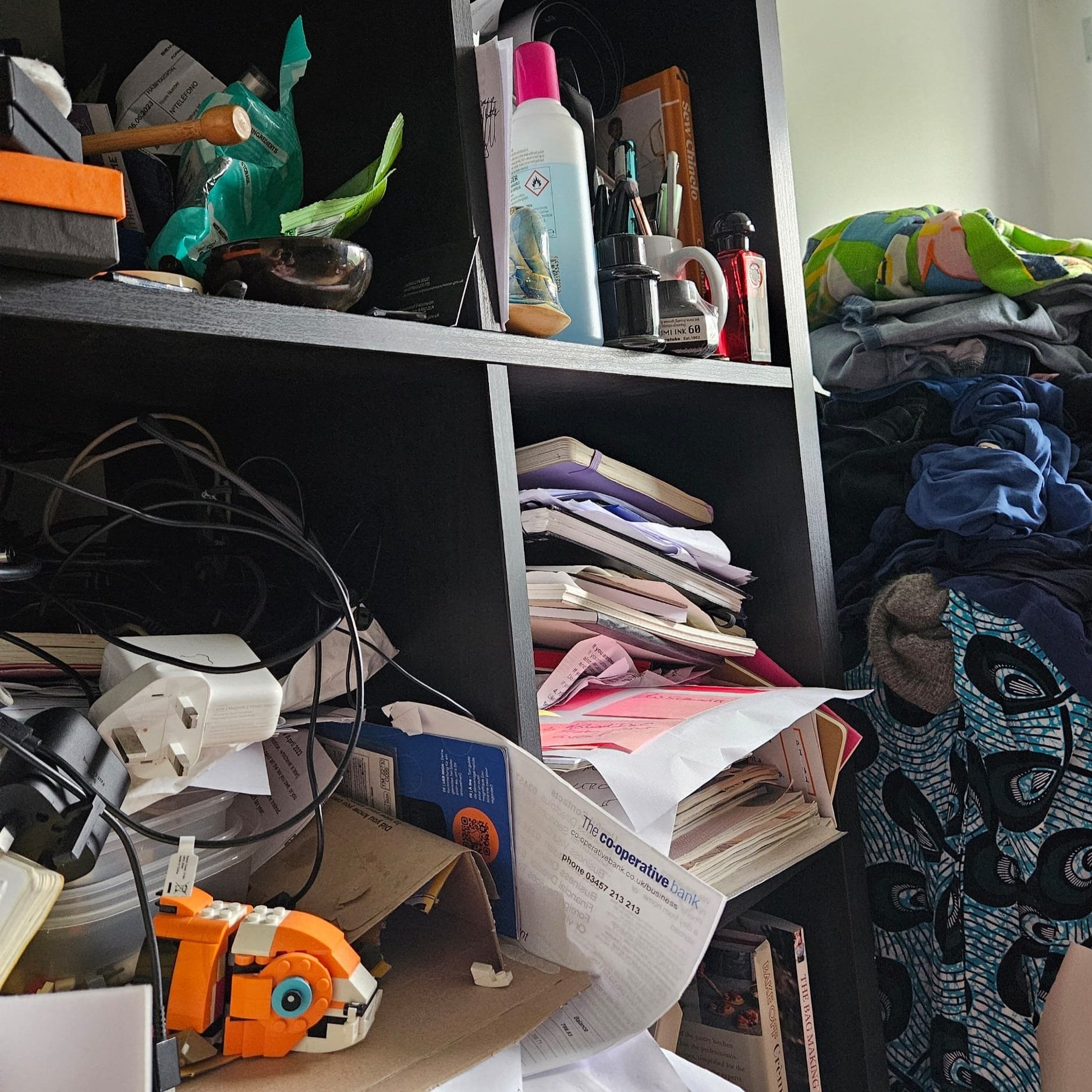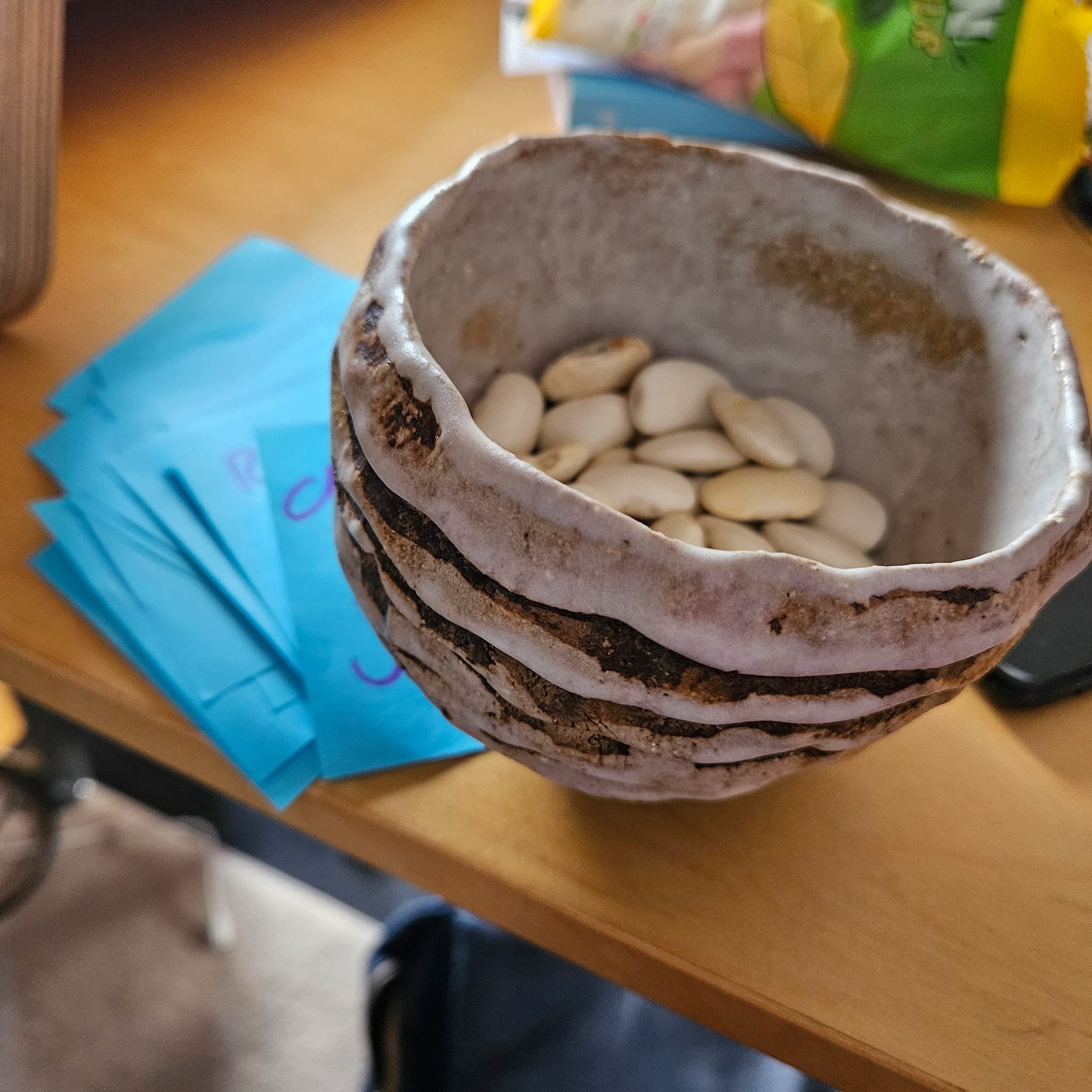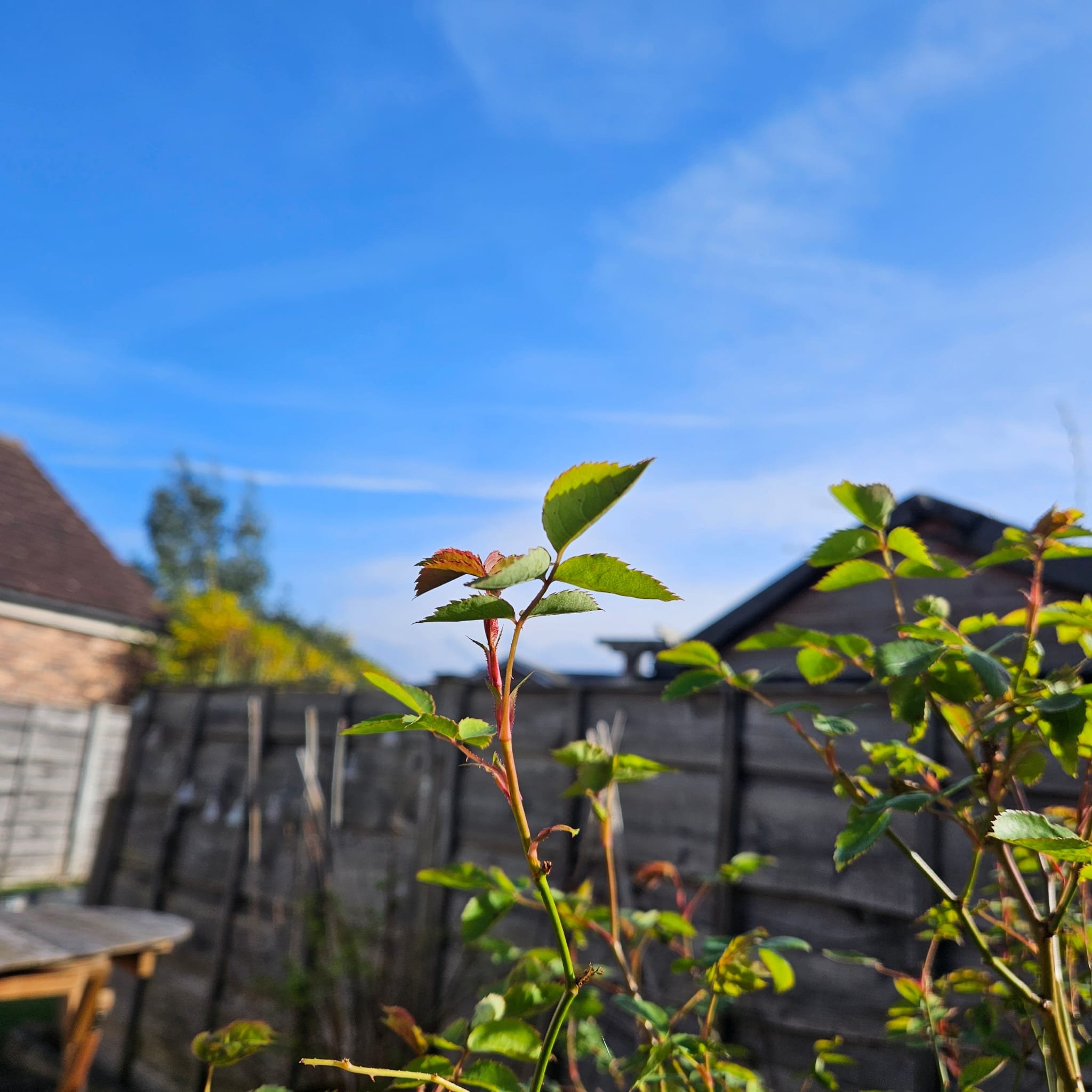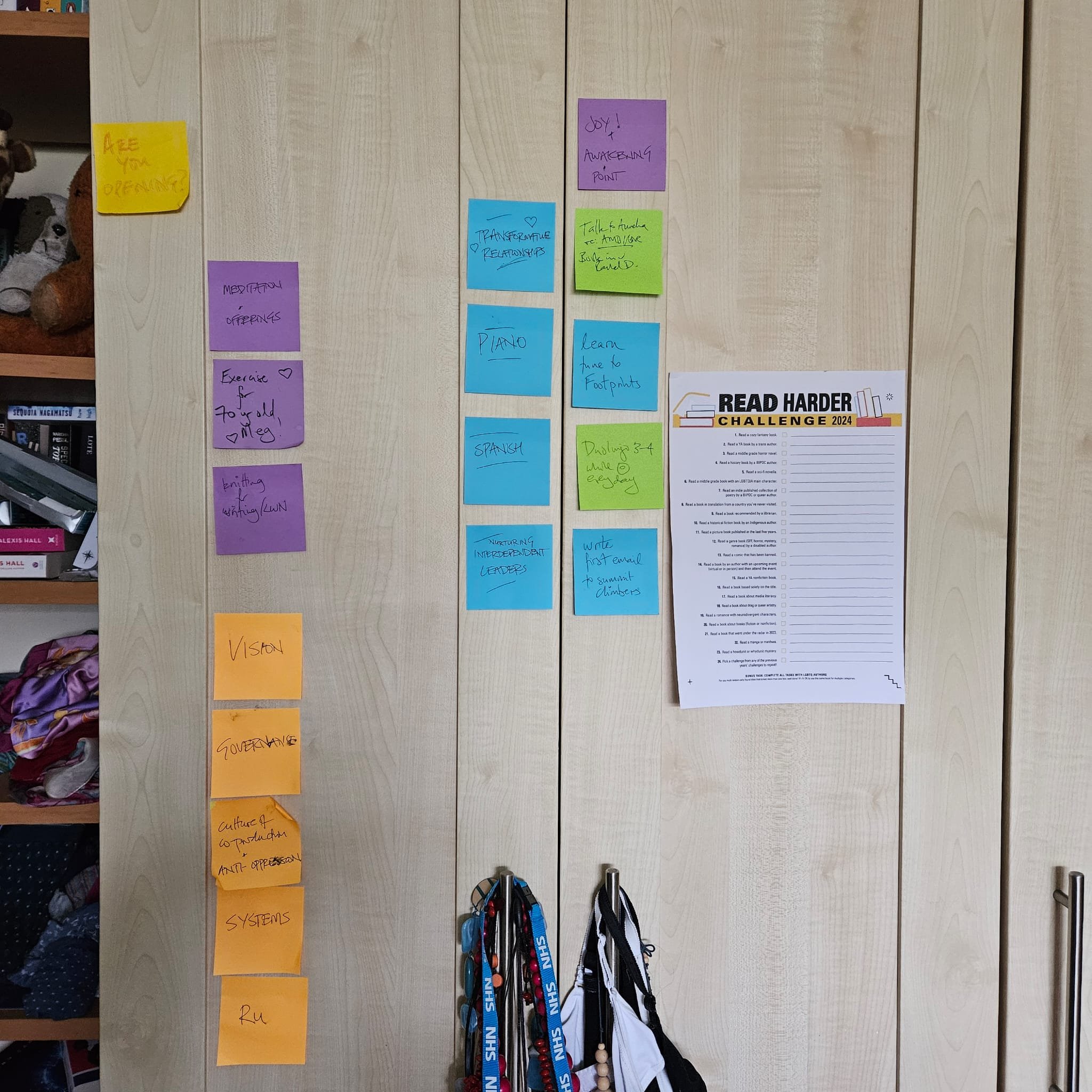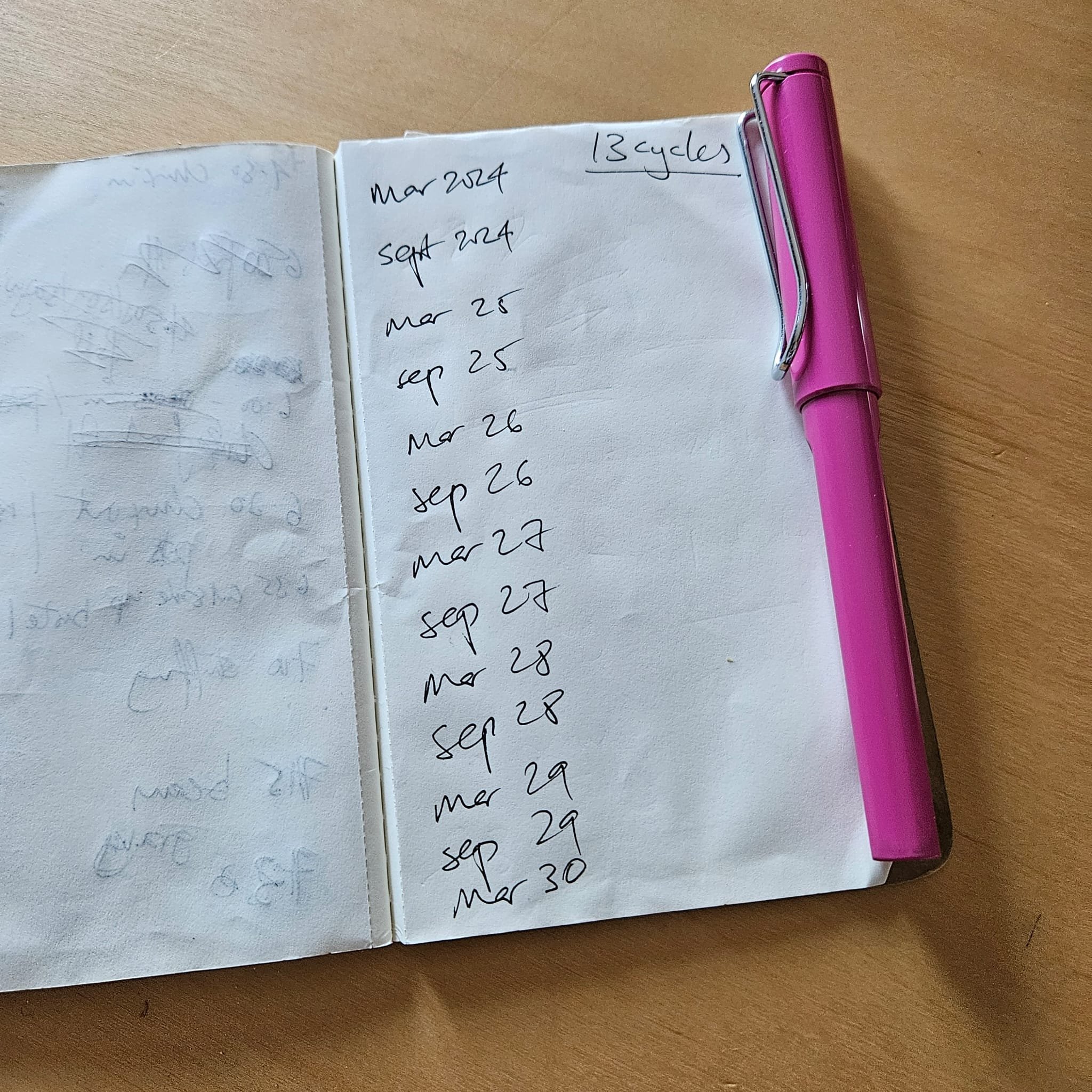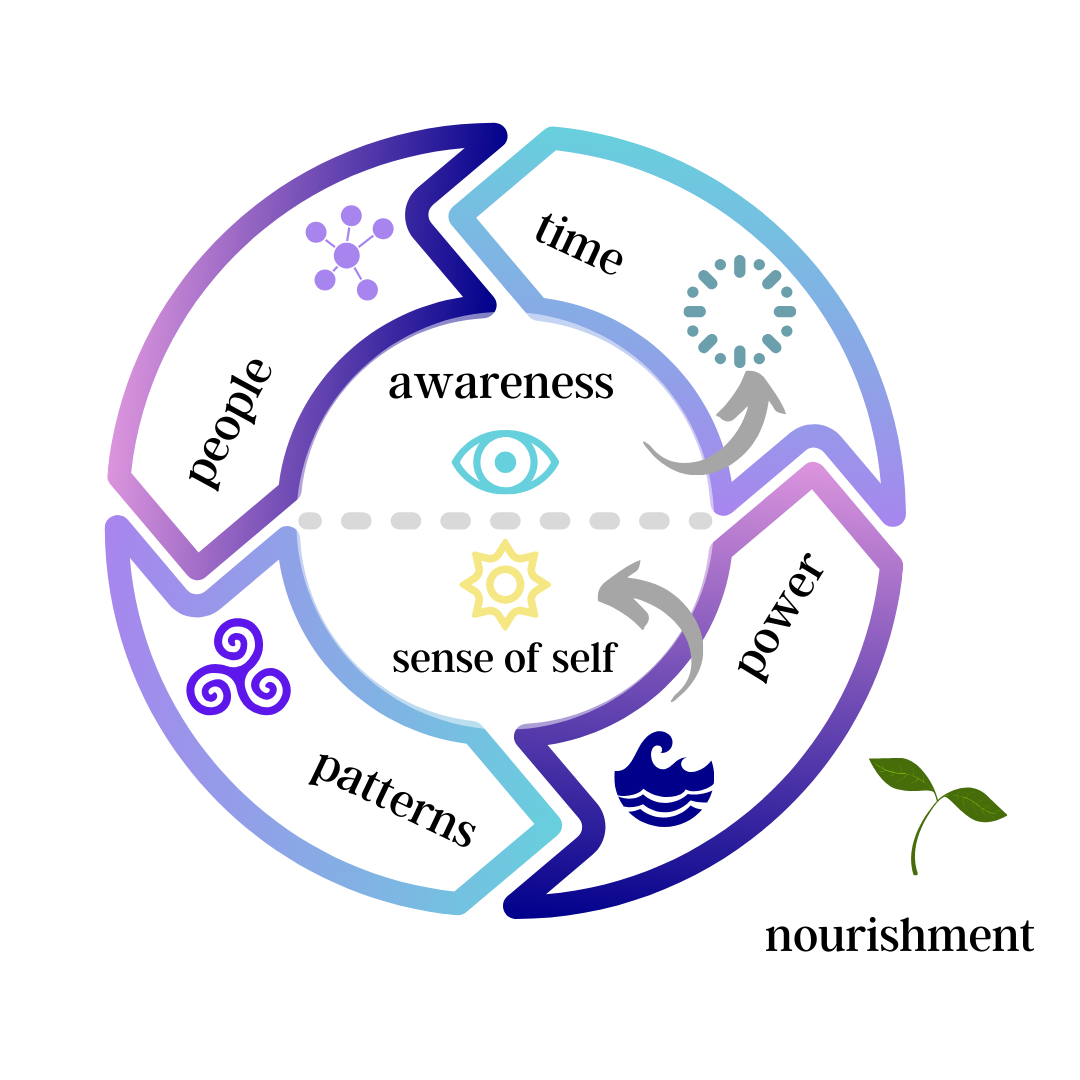Lenses of complexity and mess
Hi, this month, or which is… this lunar month based around complexity and mass, began about two or three days before the US election. I didn't quite get my ducks in a row to be able to edit the chapter that would have given you some guidance on what to choose. And then the election happened, and I—it felt inappropriate to be sending an email out in those first two or three days.
I then spent the next, following two and a bit weeks, working days, evenings, and weekends on a project for my day job. I finally got a day off. I really wanted to talk to you about the lenses of complexity and mess, the stages that adults can go through to develop more complexity of mind, and how that might apply to engaging large groups of people, which also probably applies to when you're writing, when you're a manager or a leader, a public intellectual, or someone who heads up an organization or a movement.
Understanding the basics of the theories of complexity of mind might give us more ability to consciously choose how we communicate our ideas so that people connect with them and engage with them if they want to, but the manner in which we're communicating them doesn't exclude people who we might want to engage.
So, I'm going to go through the major stages and then ask some reflection questions, and hopefully that will be useful to you in the setting hours of this lunar month before we move on to the next month.
The magic stage
When you look at kids, there's this stage which is really recognizable to people who've spent time with children. At one point, they are really connected to fantasy. They're really connected to their lens on the world in terms of the anything that they experience, they presume is how things are in the world.
They stand on a tall building and look down, and the people are tiny. They don't look tiny. They are tiny. You take a big glass of liquid, you pour it into a low, flat dish, you pour the same liquid into a very tall, thin receptacle, they will say there is more liquid in the tall, thin one than in the low, flat one, and that's because they have not yet grasped the concept of enduring categories.
The Development of Enduring Categories
Then something happens generally around age 7, 8, 9, where their experience of the world builds up enough examples where they begin to understand enduring categories. They begin to understand that physical things have ongoing characteristics, and they themselves have ongoing characteristics.
So it's not just that in the moment... previously, in the moment we just want ice cream, strawberry ice cream. And then over that age, we realize that we're the kind of person who likes strawberry ice cream. Part of our identity persists over time. This is a major cognitive shift.
The Self-Sovereign Mind
However, there is only the ability to see through our own eyes, and therefore, in terms of following rules, we will only follow rules if we see that there's a negative consequence to ourselves. We understand other people have ideas and feelings, but we only understand them through the way that they behave and speak, not by being able to put ourselves in their shoes and see the world through their eyes.
This is when kids become Guinness World Book of Records mini scientists learning facts about the thing that is their interest. Most people begin to evolve beyond the stage, but lots of us just stay here in our adulthood. And people who remain in this inability to step outside of their own perspective, a label that's useful for us to have so we can refer to it, one of the scholars calls it the Self-Sovereign mind.
They're not selfish, they just don't have the ability to see outside of their perspective. And so they'll follow rules if it's really clear that there will be punishment if they break them and they'll be caught. If there's a way for them to get around those rules because they won't be observed, or because the punishment isn't severe enough for them to care, then they will do what they want.
The world is really complex, and for people who see the world, particularly adults, but if you also think about it, of teenagers, the world is actually too complex for this form of mind. And so constantly, people in the Self-Sovereign mind feel in over their heads.
What we’re really asking of adolescents
The transition that we ask of adolescents is we begin to expect them to be stepping out of the Self-Sovereign mind and begin to understand that they are part of a larger unit that they owe allegiance to, the family, to society. And it's not so much that we want them to follow the rules, it's that we want them to follow the rules because they place… They're able to see through other people's eyes, and they are able to hold their own needs in one hand, and the needs of, for example, their parents.
So when we were adolescents, our parents wanted us to call them when we were going to be late, not because we were going to be in trouble if we didn't, but because they wanted us to do it out of care for them.
And very often, the form of mind that someone of that age has is not yet capable of holding their own needs in one hand and the needs of other people in the other. Then they haven't yet built the ability to have cross categorical thinking. And this is the next stage of mind, which is a huge leap in complexity.
We might—the some of the scholars call it this, the Socialised mind. And the Socialised mind is when we do step out of our perspective and begin to see that other people have a perspective as well.
The Socialized Mind
But when we are deeply rooted in the Socialised mind, all of our values and beliefs come from outside of ourselves. When you ask us, when we're, when we're coming from the Socialised mind, what do we think? We talk about what they think.
This is the time of belonging. This is a stage where we find the group of people who we identify and take, like one of my colleagues says, we inhale the beliefs and values of a person or a group outside of ourselves.
And at this stage, we do begin to feel that we don’t—sense of self is external, is held by others. And this is the prerequisite for being a member of society, is not that you follow the rules of society because of your fear of punishment, which is what happens with someone at the Self-Sovereign mind. You follow the rules of society because you belong to it, and you want to be a good team member.
How we hit the limits of the Socialized Mind
And so people with the self, sort of self, with the Socialised mind, are able to step outside of themselves, but they often lose the ability to hold their own perspective. And there can be strong loyalty, and even that loyalty can change if someone we respect expresses something that makes more sense to us.
Then we can begin to exhale the views that we had and inhale a different set of views, but still they’re coming from the outside. We’re not able to step back and pick and choose our own schema often.
The evolution that happens from the Socialised mind is—what do you do when there’s conflict? When one person you really care about or appreciate has one set of views, and someone else you really care about or appreciate has a different set of views?
You feel... you feel like you’re being torn apart. And the only route out of that tearing apart is either to plump for one and reject the other, or to learn the ability to go, hold on. What do I think?
The Transition to the Self-Authored Mind
And it’s at this time when people might begin to say, “But hold on, what’s your perspective on this? I hear you talking a lot about other people. What do you really think?”
And over time, that becomes to be, not an alien concept, but you begin to go, huh? What does my own internal voice say? What do my own sensations tell me? When you begin to—we can begin to develop into something where we are authoring our own system, outside of the perspective of others.
And this stage is referred to as the Self-Authored stage. And it’s a very grown-up stage. It’s what we think of as adults having. It’s when we’re able to step back, decide what our beliefs are, decide how we go about things, decide how we can change our methods in order to get our outcomes.
Characteristics of the Self-Authored Mind
We begin to think potentially, when we’re really rooted into the self authored system, begin to think slightly longer timelines, begin to be able to see more patterns. An inspirational leader who has their own perspective will be likely coming from a self authored perspective.
And although—it depends on how they formed that. If they’re, if they’ve inhaled someone else’s perspective, it may be that they’re still at the Socialised mind. But someone at the Self-Authored mind, when we are at this stage, we really are much more able to deal with the complexity of the world.
We’re more able to get things done. We know our own mind. We have quite a lot of certainty.
The Self-Transforming Mind
There is another transition which is much rarer, but I think we’re seeing more of, particularly amongst multiply marginalized people, is we—once we’ve developed our own lens on the world, but we then begin, continue to see the complexity of the world and realize that our Self-Authored system doesn’t have all the answers.
And maybe we’ve gotten really good at things. We’ve gotten really good at getting stuff done, and yet we still—we look up, and we see the world is still broken. There are bigger systems. There are longer periods of history. There are repeating patterns.
The binaries begin to loosen to us. We begin to see that there aren’t two sides. There is just this period, this set of gray or a spectrum of colors. And we begin to see that, oh, if I’d been put in a different situation in my life, I might be taking those actions and having those beliefs.
The Experience of the Self-Transforming Mind
And it becomes harder and harder to be certain, and we’re much more able to step back from our self authored perspective, which in its own case, was stepping back from the views of others, and see the reality of the complexity of the world, which is that the world is full of spectrums and complexity and mess.
And how do we still take our steps forward? And the transition of the Self-Transforming mind can feel like a loss, more of a loss, potentially, I don’t know, it feels to me like more of a loss, particularly when someone has been really successful in the world, has been really driven towards a particular cause or way of doing things, and then they—it’s like we lose a belief in that anymore, but we’re not sure what we believe and even what belief is.
It can be really lonely at the Self-Transfoming stage
Like, there are nested questions that we begin to see. What is it to be human? What is it to be a leader? What on earth does it mean to know something? To be wise? What is wisdom? Is wisdom real?
And there can be, in my experience, some really dark nights of the soul where you feel like you’ve lost all of your landmarks. And the people around you are very likely to be at the Socialised mind as an—or somewhere between Socialised mind and the self authoring mind.
There are big transitions. Transitions can take years and years, or people can remain in a certain stage for the rest of their life, and they are trying to bring you back to belonging, or they’re trying to bring you back to the certainty that you had before, particularly if they’ve known you for a while.
The Role of the Self-Transforming Mind
So understanding that this is a new form of mind, that actually the people who can create deeper change in the world are the people who can hold the—can hold loosely to certainty and can see the edges.
And the margins are the people who are able to make bigger change that has deeper roots. Often, people at the Self-Transforming mind use ecosystem metaphors. You’ll hear them talk about soil quite a lot (!).
Engaging Different Stages of Complexity
So, what does this mean if we want to get a whole range of people joining a movement or being engaged with a set of ideas? Well, it can be really important to think about the Self-Sovereign mind.
What does it mean to know that some people will only take action if it’s in their best interests, not because they’re selfish, but because they can’t see outside of their own perspective?
People in the Self-Sovereign mind: when we are in that stage, people who talk about shades of gray, we can only think that they are trying to manipulate us, or they’re lying.
People at the Socialised mind: how do we help them to feel a sense of belonging, that we are able to help them see that people they respect are thinking these ideas as well?
People at the Self-Authored mind: how do we support them in making their own decisions? How do we supply enough information for them to be able to decide how they want to respond to our ideas?
And people at the Self-Transforming mind: how do we support them to listen something new into being? How do we support their often new inability to see binaries?
Supporting the Self-Transforming Mind
How do we support them in feeling the roots of our ideas and looking forward and backward, much further than other people do? That we can embrace their sometimes allergy to certainty, or their inability to be certain in lots of situations?
Self—people in the Self-Transforming mind are very both/and-and-also people. They’re the people who go, well, that’s a good question, but that’s—the real question is this, or I wonder whether there’s this aspect also.
They’re constantly seeing a kaleidoscope of options. So, when we’re thinking about engaging a broad stretch of people, we may need to think about, how do our—how do we shift our ways of communicating so that it’s—we’re giving people the opportunity to engage with our ideas.
And at times, we may want to engage people at a certain complexity of mind, and that’s okay.
(As a coach, I tend to work with people who are towards the Self-Transforming mind, because I think you all are really lonely, and there’s loads of people who support the people at Self-Authored stage, but there’s very few who support Self-Transforming.
So I understand that a lot of the time, my ideas may seem esoteric or a bit floopy to people, and that’s fine for me.)
But if you’re someone who is working on creating a mass movement, some people will really like the idea of belonging, but some people won’t. Some people will only understand if they can see the benefits for themselves, for literally, their own lives.
Some people will only be able to engage if they’re able to make their own decisions. And the Self-Transforming people—you’ll—they’ll—you just have to have a good vibe, and they’ll have to smell their way into the pathway themselves…
Reflections on Complexity of Mind
So I hope those are useful ideas. And it felt like the ideas around complexity of mind are missing from when people are talking about movements, and it seemed particularly pertinent around something so binary as the US election.
But also here in the UK, there’s similar flows of polarized thinking, which can, when you’re looking through the complexity of mind, you can see the lens of the different stages of complexity of mind.
You’re able to see your own lens a little bit more.
And even when I was looking at some of the analysis of the—post-analysis of the US election, you can see some more of the stage of the complexity of mind of the person making the analysis.
And then you can get a sense of whether that analysis is something that suits you.
Nesting and Growth
And the one caveat is we tend to forget, once we’ve grown to a different complexity of mind, we tend to forget that we ever had a different way of making sense of the world.
Which is the other reason of having these in your mind, because they are all still inside you. We still, like rings of a tree or nesting dolls, we still have the fantasy-driven child. We still have the Self-Sovereign. We still have the Socialised mind. If we’ve grown to self-author, we still have the Self-Authored stage. If we’ve lost our Self-Authored stage and grown towards the Self-Transforming, we also have that.
And depending on the stress we’re under and the situations that we’re in and the people we’re around, we can—we contract and expand? We can, yeah, contract to earlier stages, and the ability to expand beyond also takes a lot of time.
Let me know how this lands with you
And there are some interesting stages. I’ll post a link to a book that I think is really useful, the second edition of which has just come out, and also name it—name a couple of scholars.
So I hope that’s useful to you. I’m wildly, wildly, wildly interested in hearing your responses to this—where you think it’s useful, where you think it’s missing.
And also apologies that this is arriving in the closing hours of the lunar month before we move on to another topic. But I think it will—it applies to our next month, which is thinking about other people.
Thanks. World-changing leaders. Thanks for your patience with me.


